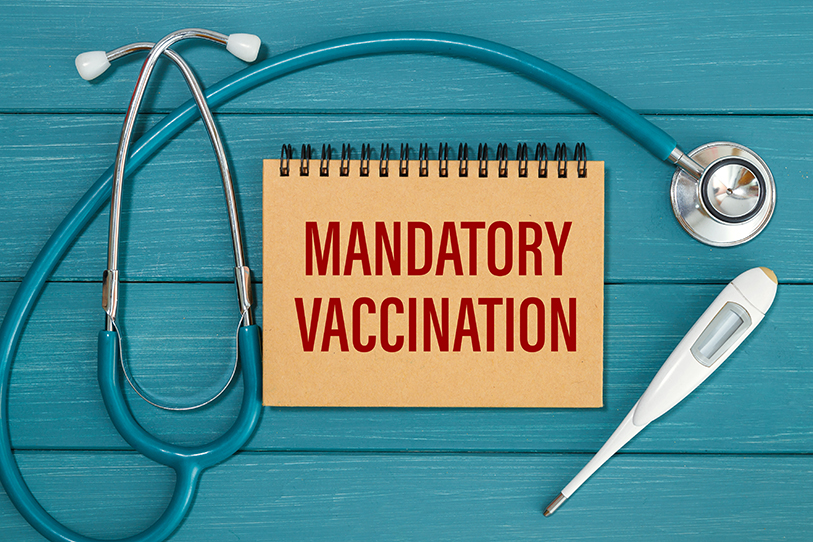On August 5, 2021, the California Department of Public Health (CDPH) issued a statewide mandatory vaccination order for most health care facilities. However, certain caregiver employers weren’t covered by the August 5 order such as hospices or in-home direct care services. On September 28, 2021, the CDPH issued a second statewide vaccination order for certain health care workers to fill in the gaps left by the August 5 order.
The September 28 order covers:
- All workers who provide services or work in Adult and Senior Care Facilities licensed by the California Department of Social Services (DSS);
- All in-home direct care services workers, including registered home care aides and certified home health aides, except for those workers who only provide services to a recipient with whom they live or who are a family member;
- All waiver personal care services providers, as defined by the Department of Health Care Services, and in-home supportive services providers, as defined by the DSS, except for those workers who only provide services to a recipient with whom they live or who are a family member;
- All hospice workers who are providing services in the home or a licensed facility; and
- All regional center employees, as well as service provider workers, who provide services to a consumer through the network of Regional Centers serving individuals with developmental and intellectual disabilities, except for those workers who only provide services to a recipient with whom they live or who are a family member.
Employers of workers covered under this order must require all workers to show proof that they have received the first dose of a one-dose vaccine or the second dose of a two-dose vaccine no later than November 30, 2021. Following the CDPH’s July 26, 2021, public health order, employers must use one of the following methods for verify full vaccination status:
- A vaccination card issued by the U.S. Centers for Disease Control and Prevention (CDC) or World Health Organization that includes the name of the person, type of vaccine administered and dates doses were administered; or
- A photo or copy of the vaccination card either as a hardcopy or stored on a phone or electronic device; or
- Documentation of full vaccination from a healthcare provider; or
- An authentic digital record that includes a QR code that when scanned by a SMART Health Card reader accurately displays the person’s name, date of birth, vaccine type and dates administered; or
- Documentation of vaccination from other contracted employers who follow the above vaccination records guidelines and standards.
Employers must maintain verification records and provide them to the state Public Health Officers, the DSS or their designees.
The order allows for two limited exceptions due a disability or sincerely held religious belief. To exercise the exemption, the employee must provide a declination of vaccine letter based on the appropriate exemption that is signed under penalty of perjury. If the declination is due to a disability, a licensed medical provider must sign the letter. If an employee exercises a valid exemption, the employee must provide proof of a negative test once a week as well as wear a surgical mask or higher level respirator, such as an N95 respirator, in order to enter the facilities or home of the client.
Due to the length of time it takes to become fully vaccinated with two-dose vaccine regimens, employers with workers covered by this order should immediately begin efforts to comply with the November 30, 2021, deadline and consult with legal counsel on any issues that may arise.
Matthew J. Roberts, Employment Law Counsel/Subject Matter Expert
CalChamber members and nonmembers can read more about vaccination programs in several Q&As (Can employers implement a mandatory vaccination program? Must an employer exempt an employee from a mandatory vaccination program for disability- or religious-related concerns?) in the HR Library. Like what you see? See what else CalChamber can do for you.





